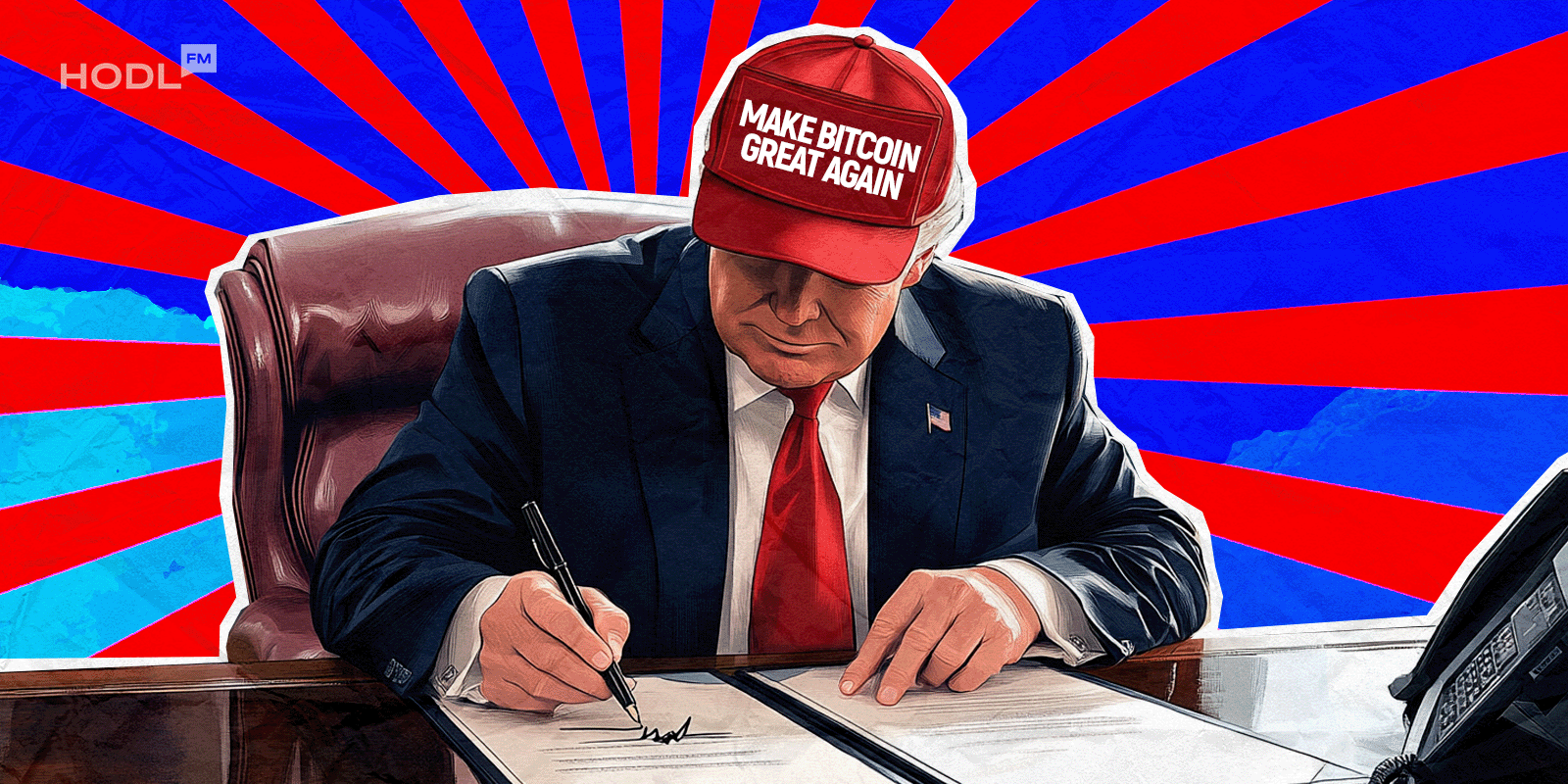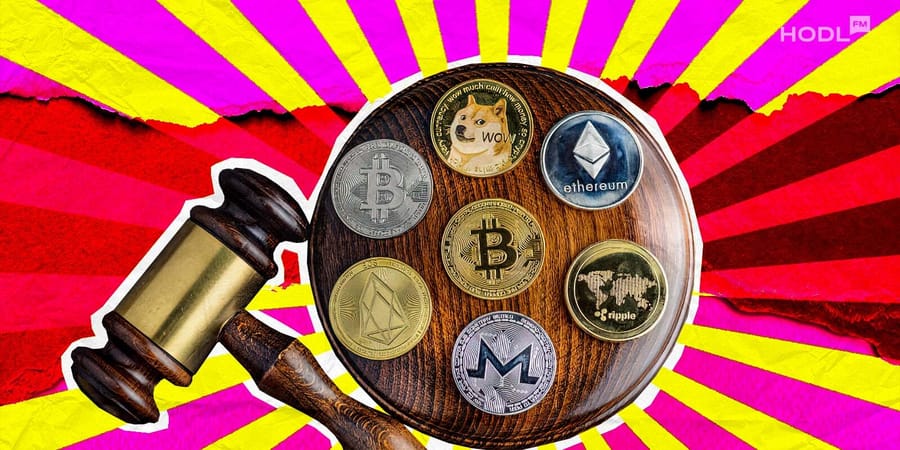In the early days, governments simply didn't pay attention to cryptocurrency. They saw it as a passing trend or a lottery for tech geeks. Then came the second phase: the regulatory challenge. The SEC tried to classify tokens as securities and fine crypto companies that didn't register or comply.
Let's recall the story of the biggest crypto exchange, Binance. First, countries welcomed it with open arms. But slowly, one by one, they started closing their doors. Suddenly, crypto was no longer a welcome guest.
However, the industry became so massive and widely adopted that it could no longer be stopped, at the very least, due to decentralized exchanges that don't rely on a central authority. The ecosystem has started to operate independently.
So, the third stage for governments has become acceptance. Now, they need to focus on taming and regulating crypto for better global management, financial stability, and protection of society.
In this article, you'll get a detailed overview of cryptocurrency regulations worldwide: in the United States, the United Kingdom, the European Union, and Asia.
Regulations in the United States
The United States is truly a leader in adopting crypto-friendly policy. US President Donald Trump calls himself a "crypto-president." He issued the stablecoin USD1 and his own meme coin $TRUMP. His sons also have their crypto projects. It seems that a golden era has begun for crypto in the US. Of course, numerous measures follow this. Read further to find out some of the US cryptocurrency regulations in 2025.
GENIUS Act
It's not an analog of "Big Beautiful Bill". GENIUS Act means "Guaranteeing Essential National Infrastructure and U.S. Stability" and mainly concerns stablecoins. This law requires stablecoin issuers to keep a 1:1 reserve of real assets backing every coin, so users can trust their value won't suddenly crash. The GENIUS Act also demands regular audits and transparency, making sure companies don't hide risks.
On the Senate floor last month, Senator Elizabeth Warren said:
"While a strong stablecoin bill is the best possible outcome, this weak bill is worse than no bill at all."
The new rules, Christian Catalini, founder of the MIT Cryptoeconomics Lab, added, take the onus off of consumers to discern between good and bad actors within the stablecoin sector, instead opening up competition between firms based on the quality of their products.
However, this bill has a conflict of interest with the President. It states that it would "prohibit any member of Congress or senior executive branch official from issuing a payment stablecoin product during their time in public service." Meanwhile, in March, Trump-backed crypto firm World Liberty Financial issued a stablecoin USD1. Trump, in turn, has denied any wrongdoing.
Executive Order 14178
This order is Trump's crypto regulation. Executive Order 14178 prohibits creating CBDC (stands for Central Bank Digital Currency) in the US. While other countries like China, the European Union, India, Brazil, Sweden, Japan, and the United Kingdom are actively developing their own digital currencies, the US has taken a different path.
The US policymakers feared that a digital dollar could allow unprecedented surveillance of citizens' financial activity, disrupt the traditional banking system, and give the federal government too much direct control over personal finances. Instead, the US is fully supporting dollar-backed stablecoins by private issuers under strict regulation.
Strategic Bitcoin Reserve
The most advanced regulation worldwide so far is creating a strategic bitcoin reserve.
The United States government is gonna create a reserve in the US, funded with confiscated crypto assets rather than taxpayer dollars. The bill about it is expected to be introduced to Congress in late 2025.
Besides, every state can decide for itself about its reserves. New Hampshire, Arizona, and Texas are the first to successfully go through the process of taking bitcoin as a reserve.
The CLARITY Act
This law finally brings clarity to what a “digital asset” actually is. It splits crypto into two categories and defines which agency is responsible for what:
- Commodities (like Bitcoin, Ether, and native tokens of blockchains) — regulated by the CFTC (The Commodity Futures Trading Commission)
- Investment contracts (non-native utility tokens issued by projects, tokens representing shares in a company or project, tokens that grant ownership rights) — regulated by the SEC.
The CLARITY Act also includes a few rules for good behavior for crypto platforms: they must register, follow anti-money laundering laws, and keep customer funds safe. It bans using people’s crypto for staking without their permission. However, there’s some good news too: the law gives more freedom to DeFi projects that don’t hold user funds.
One Big Beautiful Bill Act
In recent days, a new bill from President Trump with the pretentious name "Big Beautiful Bill" has been widely discussed. It includes several major economic reforms:
- Maintain lower taxes for individuals and businesses
- Implement significant cuts to social safety net programs
- Eliminate several clean energy tax credits
- Raise the national debt ceiling.
Supporters of cryptocurrency, especially Senator Cynthia Lummis, tried to push crypto-related provisions into the bill: providing tax benefits for crypto stakers, miners, companies holding crypto reserves, and retail users, and easing reporting requirements.
However, there wasn't enough time, and none of these crypto-related amendments made it into the final bill. One of the crypto policy leaders mourned the outcome, calling it a "missed opportunity" for the industry.
Crypto Regulations in the European Union
The EU has always been stricter than the US. Even regarding laws of data protection, such as GDPR. In crypto, the same.
MiCA
MiCA (Markets in Crypto-Assets) is the European Union's big set of rules for crypto. It creates one clear law for all 27 EU countries. MiCA mostly focuses on stablecoins, crypto exchanges, and wallet providers (called CASPs — crypto-asset service providers). It requires crypto issuers to disclose risks and keep enough reserves, especially for stablecoins. There are also regulations in cryptocurrency trading, including rules against insider trading.
If a company gets licensed under MiCA, it can operate in any EU country without extra approvals. It's like a passport for a crypto business.
Delegated Regulation (EU) 2025/421
Finally, a document that means users no longer have to do deep research on every crypto project and pray to God it's not a scam. Now, anyone launching a crypto project in the EU must publish a detailed white paper that clearly outlines what the token does, what risks are involved, and how it will be used. These docs must be easily accessible to investors.
Travel Rule & AML Directives
The Travel Rule is not a new, strange rule from airports about what else you can't carry in your luggage, but it's about transaction crypto between wallets. Crypto companies and wallets now have to collect and share sender and receiver info just like banks.
Also, stricter Anti-Money Laundering (AML) rules make crypto platforms verify their users and monitor suspicious activities.
United Kingdom
Cryptocurrency regulations in the UK became stricter with the rise of the UK Financial Conduct Authority (FCA). This institution is responsible for regulating all financial markets in the country, including the crypto sector.
They put forward a number of requirements for the crypto market. Companies must register with the FCA, meet advertising standards, and take measures to protect consumers. Among already registered crypto exchanges are Coinbase, Kraken, eToro, CoinJar, Bitpanda, Archax, and Crypto.com.
🇪🇺 JUST IN: https://t.co/ZzXTzGIDTZ has received in-principle approval for a MiCA license, making it the first global exchange to operate across the EU under a unified regulatory framework. pic.twitter.com/MKQZBSiuvn
— Cointelegraph (@Cointelegraph) January 17, 2025
Besides, the UK Financial Conduct Authority (FCA) aims to regulate crypto staking, stablecoins, and even DeFi protocols.
Pakistan
The Asia region is paradoxical. Here, the largest number of crypto users, but at the same time, on the legislative level, countries remain closed, treat crypto with caution, and still explore it.
The dark horse among Asian countries is Pakistan. Not being a leader in the economic arena, the state conducts an active pro-crypto policy.
Pakistan set up the Pakistan Crypto Council in March to build clear rules for crypto trading and attract international investors. The Council has already introduced its first-ever policy framework to set rules for cryptocurrencies and crypto companies. They even appointed Binance founder, Changpeng Zhao, as its strategic adviser.
In May 2025, PCC's CEO, Bilal Bin Saqib, unveiled Pakistan's first government-led Strategic Bitcoin Reserve at Bitcoin Vegas 2025. In the same month, the government allocated 2,000 megawatts of surplus electricity in the first phase for bitcoin mining and AI data centers.
Singapore
Singapore is known as Asia's Silicon Valley. Previously, it had very fertile ground for crypto. However, in March 2025, the Monetary Authority of Singapore (MAS) is tightening the reins, requiring stricter licensing from crypto companies, stronger risk disclosures, and clear separation between customer funds and company money.
On May 30, the authority announced that firms or individuals providing overseas digital token services must stop operations if they don't have the necessary licenses.
Conclusion
Many countries are now taking crypto seriously and making efforts to develop their own legislation. They share similar concerns, which is why US crypto regulations often resemble those in Europe. Most aim to keep stablecoins under control, ensure crypto companies are licensed, and make everyone accountable.
SEC crypto regulations also matter, especially since the SEC imprisoned Binance CEO Changpeng Zhao (CZ) and has filed charges against Trump.
For now, truly decentralized crypto is still far from reality, and most users rely on centralized exchanges. So, governments need to build relationships with them. In fact, they can benefit from this new sector of the economy by collecting taxes, encouraging technological innovation, and even gaining strategic financial power.
So, stay tuned to crypto regulation news to keep your finger on the pulse of the evolving relationship between crypto and governments.

Disclaimer: All materials on this site are for informational purposes only. None of the material should be interpreted as investment advice. Please note that despite the nature of much of the material created and hosted on this website, HODL FM is not a financial reference resource, and the opinions of authors and other contributors are their own and should not be taken as financial advice. If you require advice. HODL FM strongly recommends contacting a qualified industry professional.





